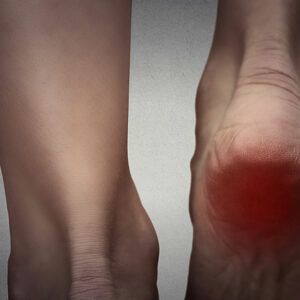5 medical conditions that may lead to bone loss

Bone loss is a condition where the body stops forming new bone and reabsorbs the old bone. Once brittle, the bones are more likely to break even with simple day-to-day tasks. Some people develop this condition due to genetics or lack of certain minerals in the body during the developmental stages. But, many people also develop bone loss due to certain medical conditions. Read on to understand these conditions and the causes of bone loss.
Rheumatoid Arthritis
Rheumatoid Arthritis, also known as RA, is a bone disease that causes inflammation of the bone joints. It also affects all the surrounding tissue. It is an autoimmune condition where the body’s immune system attacks the healthy cells. Rheumatoid Arthritis is not curable. Inflammation is one of the most significant symptoms of RA. This inflammation can affect the joints, lead to cartilage damage and cause erosion of the bones. In most cases, the inflammation can also lead to the loss of bone mineralization which can further cause bone loss, making the individual more prone to fractures.
Diabetes
A type of diabetes known as diabetes mellitus is one of the known causes of bone loss. This condition increases the osteoclast function, which degrades bone but decreases the osteoblast function, which lays down new bone cells. This leads to loss of bone and makes you prone to osteoporosis.
Overactive Parathyroid gland
An overactive parathyroid gland is a condition where one or more of the parathyroid glands are overactive. This means that the glands make too much of the parathyroid hormone(PTH). Too much parathyroid hormone in the body causes the bones to release calcium constantly into the bloodstream. This loss of calcium from the bone affects the density of the bone and even the hardness of the bone. Besides bone loss, an overactive parathyroid gland can also lead to other health troubles such as kidney stones.
Chronic Kidney disease
Chronic Kidney disease or CKD is a disease where the kidneys are damaged to such an extent that they cannot filter the blood in the way they are supposed to. The most common causes of this condition include diabetes and high blood pressure. When your kidneys start to fail, they wreak havoc in the body. They can even lead to mineral and bone disorder which is caused due to the lack of proper blood filtration and improper regulation of hormones in the body. More phosphorus in the bloodstream means low amounts of calcium, leading to low bone growth, which eventually causes bone thinning. You can experience fractures and joint pain and even develop secondary diseases like osteoporosis and renal rickets.
Lupus
Lupus is another autoimmune disease where the body’s immune system attacks the healthy cells in the body. Studies have shown that this condition increases bone loss and even fractures. There are many causes that lead to bone loss, including treatments for lupus. Most individuals who suffer from this condition are also at an increased risk of osteoporosis.
To treat bone loss, doctors may recommend treatment options like Prolia®. It helps in the management of osteoporosis in postmenopausal women who are at high risk for fracture. It also helps increase bone mass in men with osteoporosis. The list price of injection is about $1,434.14 per treatment, which is every six months. However, patients with Medicare Part B have access to Prolia® as initial therapy. Following a deductible, Medicare covers about 80 percent of office-administered products under Part B.



